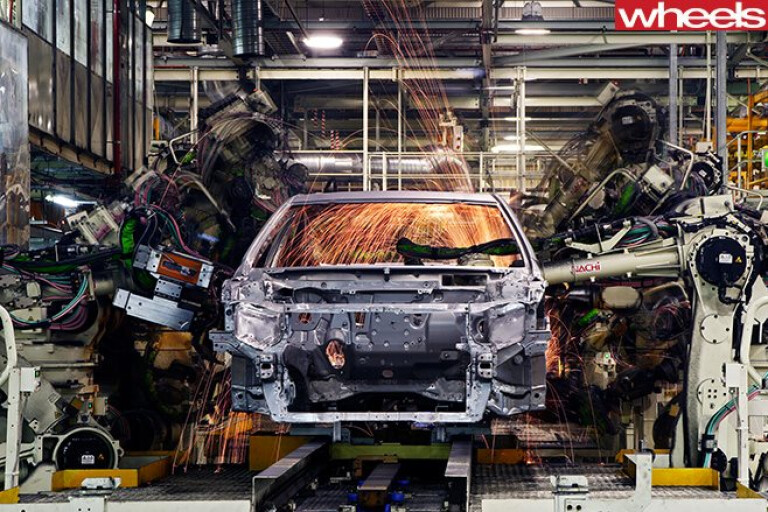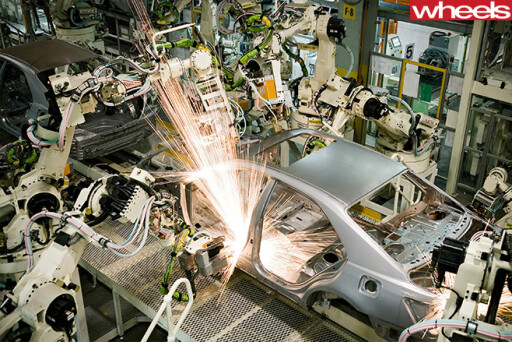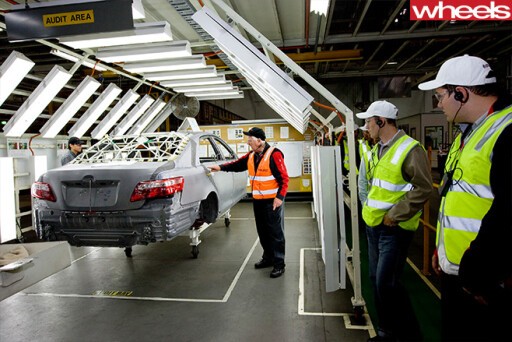
Toyota has confirmed it will close its Altona manufacturing operations on Tuesday, October 3, 2017 – 17 days before Holden will close its Elizabeth assembly line.
The early October date means Holden – Australia’s first car maker, which opened its doors in 1948 - will be the last manufacturer to build a car in Australia, with October 20 the day the last Holden Commodore will roll down the line.
In a brief statement Toyota reaffirmed its commitment to manufacturing for the next eight months before it switches wholly to importing.
“We remain extremely proud of our rich manufacturing history which spans over 50 years,” said Toyota Australia president Dave Buttner. “Our employees are committed to producing vehicles of the highest quality as we work towards our goal of 'last car = best global car'.”
Australia was the first country outside Japan that Toyota chose to manufacture cars, something that kicked off in 1963.
By October 3 the company will have produced about 3.5 million cars in Australia, many of them exported.
The final day of production for Holden will signify the end of almost 70 years of car manufacturing that has at times been prosperous and crucial to the Australian economy.
 And just weeks earlier it will also be the last day for about 2600 workers still at Toyota’s Altona plant that opened in 1994, 31 years after Toyota first began vehicle production in Australia.
And just weeks earlier it will also be the last day for about 2600 workers still at Toyota’s Altona plant that opened in 1994, 31 years after Toyota first began vehicle production in Australia.
Toyota’s announcement comes just weeks after Holden confirmed it would cease local car making as it makes the shift to an import-only brand from 2018.
Unlike Holden, Toyota’s path to import-only status is expected to be a lot smoother; being a Japanese brand it is much better known for its imports, whereas Holden’s heritage was built on Australian-made cars.
Toyota has already confirmed the next generation Toyota Camry will be sourced from Japan, taking over from the Australian-made one late in 2017. The new Camry doesn’t deviate from a proven formula, except to reintroduce a V6 model that was temporarily replaced by the almost identical Aurion.
Toyota’s Australian manufacturing operations began in 1963 at Port Melbourne where its head office is relocating to (from Caringbah in southern Sydney) once local manufacturing ceases.
In 1972 the company purchased 54 hectares (133 acres) of land at Altona, then on Melbourne’s fringe, and began producing engines there in 1978.
It shifted its vehicle assembly operations to the current location in Altona by 1994 with the production of a brand new plant.
The first car to be produced at Altona was the Corolla before the Camry was added soon after, part of a bold export plan that included the Middle East.
 Altona was the only Australian car line to produce a hybrid vehicle, with production of the Camry Hybrid commencing in 2009.
Altona was the only Australian car line to produce a hybrid vehicle, with production of the Camry Hybrid commencing in 2009.
Whereas arch rivals Holden and Ford focused their manufacturing efforts on producing large cars predominantly for Australians, Toyota’s model was focused heavily on exports.
In recent years Toyota has produced more cars than Ford and Holden in Australia with a peak of 148,931 in 2007.
Ironically Holden funded much of the development of Toyota’s Altona plant with proceeds as a result of a split in the controversial and troubled United Australian Automotive Industries that was a government-encouraged joint venture between Holden and Toyota. The tie-up led to both sides “badge engineering”, whereby each other’s cars were rebranded with that of the other.
As a result not all cars produced by Toyota in Australia wore Toyota badges. In the late 1980s and early 1990s Toyota produced Corollas and Camrys for Holden. They were marketed as the Nova and Apollo and were said to provide Holden with cars with much lower warranty claim rates than the vehicles it was producing.
Started in 1986 as Holden was facing bankruptcy, the UAAI joint venture quickly soured with a clash of cultures and expectations, prompting former Toyota Australia chief John Conomos to later refer to it as a “shotgun marriage” that was riddled with “indigestion”, ultimately turning it “toxic”.
As part of the deal Toyota took rebadged Holden Commodores, which is marketed as the Toyota Lexcen. It was a flop in the sales race and quality issues negatively impacted Toyota’s stellar reputation for quality and reliability.

COMMENTS